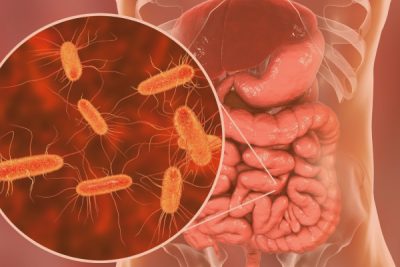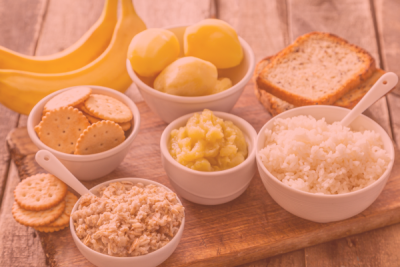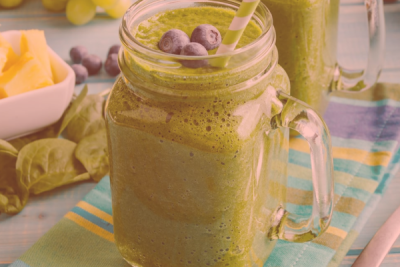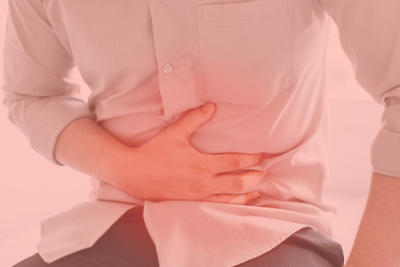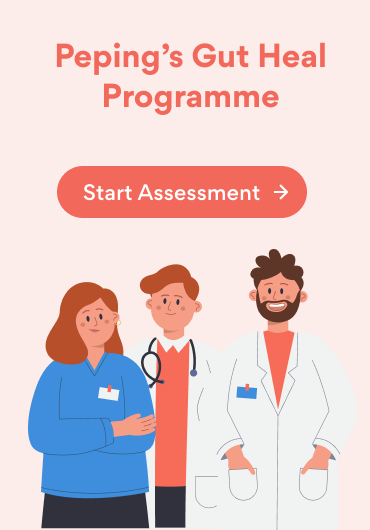You brush and floss twice daily but your bad breath does not go away? Suffering from bad breath despite a strong dental regime? Sound familiar? You may need to look beyond the mouth for solutions: Bad breath may be arising from your stomach!
Halitosis, or bad breath, is a complaint that may cause pain in the middle of your chest and social embarrassment. Common causes of bad breath include ulcers in the mouth, tongue coatings, periodontal disease resulting from the accumulation of food in between your teeth and gums, diabetes, kidney disease, and bacterial (Helicobacter pylori) infections.
Studies have also linked bad breath to chronic acid reflux, also known as gastroesophageal reflux disease (GERD), which is a common medical condition.
The esophagus or food pipe is designed to be a highway for the food from the mouth to the stomach. In acid reflux, the stomach contents, including undigested food, regurgitated bile, and stomach acids, flow backward into the esophagus. This can lead to bad breath.
Frequent episodes of acid reflux or heartburn may be symptoms of a condition called gastroesophageal reflux disease (GERD). This is commonly referred to as acid reflux. But it is a more chronic condition requiring medical treatment to reduce esophageal damage.
Contrary to the name, heartburn has nothing to do with your heart. Instead, the name comes from the burning sensations that occur around your chest and upper gastrointestinal tract.
What causes acid reflux?
The primary cause of acid reflux is a defective or relaxed lower esophageal sphincter (LES). The LES is a valve-like muscle (imagine a thick rubber band) that forms a barrier between the esophagus and the stomach.
A healthy LES opens when you swallow to let food enter the stomach and then closes tightly, whereas a faulty LES remains open, allowing acids to flow back into the throat. The discomfort from reverse flow from the stomach to your food pipe can last up to two hours at a time.
Bad breath caused by GERD may coincide with other gastrointestinal (GI) symptoms. Bloating, constipation, pain, and burping can all be signs of acid reflux. This is especially true when digestive symptoms are experienced right after a feeding pattern.
Do you experience abdominal cramps after drinking coffee? Do you experience a strong metallic taste in your mouth and start to burp frequently? Paying attention to how your body reacts to food is an effective way to determine the cause of bad breath and identify foods that trigger GERD. Moreover, medications such as ibuprofen, muscle relaxers, and blood pressure regulators may also cause acid reflux.
Signs and symptoms of GERD
The risk of having bad breath increases with an increase in the severity of GERD symptoms. GERD symptoms are experienced at least twice weekly. Apart from the classic heartburn, GERD may cause:
- a bitter taste in the back of your mouth
- nausea
- excessive belching
- coughing
- sore throat
- flatulence
- wheezing
- swallowing difficulties
- frequent burping
- bad breath
Halitosis may be considered an extra-esophageal (non-esophageal) manifestation of GERD. A dentist can usually identify GERD since GERD patients often present with acid erosion of their teeth and an inflamed red throat, especially the tonsillar region. Other signs include areas of irritation on the gums and tongue and gums.
Acid reflux smells similar to the bile juice produced by the liver- strong, sulfuric, acidic, and pungent. Volatile sulphur compounds (VSCs) such as methyl mercaptan, dimethyl sulphide, and hydrogen sulphide are the main contributors to the smell. Patients may also report different smells based on the medicine they are taking to manage GERD.
If the throat feels itchy, tingly, or scratchy after burping, these are clear signs of acid reflux. A burning sensation in the throat accompanied by a bad smell is a telling sign you have gastrointestinal issues. Acid reflux may also aggravate and cause other medical conditions, such as asthma and vocal cord tumours.
How to treat bad breath from acid reflux?
In addition to managing GERD, bad breath may be controlled by making lifestyle modifications that provide long-term benefits. Here are a few ways by which you can shake off the bad breath reflux for good:
- Quit smoking. Nicotine from cigarette smoke cause your LES to relax, allowing acid reflux into your esophagus. Smoking also increases your risk of cancer of the mouth, esophagus, throat, pancreas, stomach, colon, and liver.
- Wait for at least two to three hours to lie down after a meal
- Place a pillow under your head to elevate the head of your bed by four to eight inches to raise your torso level and decrease pressure on your LES. This helps the food in your stomach remain there instead of travelling into your esophagus while you are asleep.
- Avoid bedtime snacks or meals
- Eat smaller meals throughout the day rather than three large meals
- Maintain a healthy weight to help lower pressure on the LES. The American Society for Gastrointestinal Endoscopy has identified obesity as a leading cause of frequent heartburn.
- Use chewing gum (sugar-free) to keep your mouth moist and decrease reflux by stimulating saliva production and clearing acid from the mouth.
- Maintain proper oral hygiene. Brush and floss after each meal and after experiencing reflux. Over time, acids wafting up through the esophagus and to the mouth can cause teeth to erode and the build-up of decaying matter around the teeth could contribute to the bad smell.
- Avoid wearing tight belts and clothes that put pressure on the abdomen.
Diet modifications to treat GERD
Modifying your diet can help relieve GERD symptoms and improve your breath.
- Avoid or limit consumption of alcohol, carbonated drinks, coffee, caffeinated tea, onions, garlic, citrus fruits and juices, tomato products, peppermint, spicy food, chocolate, and fried or fatty foods. Such foods can weaken the LES.
- Identify triggers for GERD symptoms and avoid them. E.g., if tomato sauce causes gastrointestinal irritation, avoid foods containing tomato sauce.
- Triggers can cause the “valve” to malfunction, and the acid is brought back to the esophagus. Reducing trigger foods can improve GERD in two ways: it can alleviate symptoms in the short term, and help lose weight in the long term.
- Increase intake of fibre-rich foods such as whole grains (oatmeal and brown rice), root vegetables (carrots, beets, and sweet potatoes) and green vegetables (asparagus, green beans, and broccoli) to fight bad breath. Fibre smoothens the digestive process and decreases the chances of acid reflux and obstruction.
- Fibrous foods also keep you feeling full longer and help maintain your weight. Weight loss can also reduce the risk of a hiatal hernia, a condition in which the upper part of the stomach bulges and moves above the diaphragm. Hiatal hernia can increase GERD symptoms.
- Drink plenty of water throughout the day for fresh breath. Water is less likely than other fluids to weaken the LES or cause stomach upset. It also helps in releasing saliva and washing away odour-causing bacteria. Prefer still water to sparkling water since carbonation may aggravate heartburn symptoms in a few individuals.
- Eating foods with high water content such as cucumber, celery, lettuce, and herbal tea can dilute stomach acids.
- Reduce your intake of fried, fatty and acidic (low pH) foods. Highly acidic foods include dairy products such as cheese, processed foods that are high in sodium, such as packaged crackers, High-sodium condiments such as steak sauce, barbecue sauce, and soy sauce, fish and other seafood, fresh red meats, and processed meats.
- Alkaline foods such as bananas, melons, cauliflower, fennel, and nuts have high pH values and can help offset stomach acids.
- Don’t skip breakfast and just have coffee in the morning. This can increase acid.
- Take deep breaths after eating: Pull down your diaphragm while stimulating the “rest & digest” nervous system.
Drug therapies to treat GERD
Consult a gastroenterologist in case of GERD causing bad breath. Several types of over-the-counter (OTC) and prescription-strength medications can treat GERD, including:
- Antacids are OTC medications that neutralize stomach acid and relieve GERD symptoms with salts, bicarbonate, and hydroxide ions. Ingredients you must look for include sodium bicarbonate, calcium carbonate, magnesium hydroxide, and aluminum hydroxide (usually used in combination with magnesium hydroxide)
- Histamine blockers (H2 blockers) are medications that work on stomach cells that produce acids. There are available as OTC and prescription H2 blockers. Examples include famotidine, nizatidine, and cimetidine.
- Proton pump inhibitors (PPI) medications are strong drugs for decreasing stomach acid production and are usually prescribed by doctors. PPIs include rabeprazole, omeprazole, pantoprazole, esomeprazole, and lansoprazole.
- Chewable antacids comprise breath-freshening ingredients that could improve breath and relieve acidity simultaneously.
- Certain GERD medications could lead to dry mouth or xerostomia. A dry occurs when your salivary glands do not produce saliva in sufficient amounts, and therefore contribute to bad breath.
Quick Fixes: Home remedies for bad breath from acid reflux
The most appropriate way to manage halitosis caused by GERD is to treat the root cause- GERD itself. However, knowing some quick fixes can come in handy, prevent you from worrying when meeting individuals and save you from embarrassing situations.
- Always keep a glass of water beside you and take frequent sips. Dilute the stomach acids to the extent possible by drinking increased amounts of water.
- Drink pineapple juice, ginger tea, apple cider vinegar, or milk to counteract bad breath
- Parsley is known to help with bad breath, so look out for these garnishes when meeting people over meals.
- Increase yogurt (probiotic) intake to promote the growth of beneficial gut bacteria
- Eat a lemon wedge or an orange slice after meals. Raw lemon is said to help keep the LES close. However, consuming large amounts may worsen acid reflux.
- Use zinc-based products to keep halitosis at bay
- Snack with apples
- Consider making a mouthwash using baking soda or vinegar at home. Commercial mouthwashes may contain alcohol, which may trigger acid reflux.
The Bottom Line
In GERD, the contents of your stomach flow back into the throat. Frequent episodes of acid reflux can cause bad breath. However, lifestyle modifications and medications can reduce acid reflux and freshen your breath.



